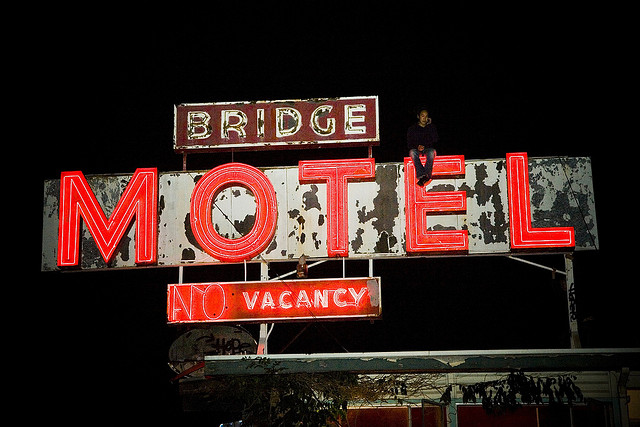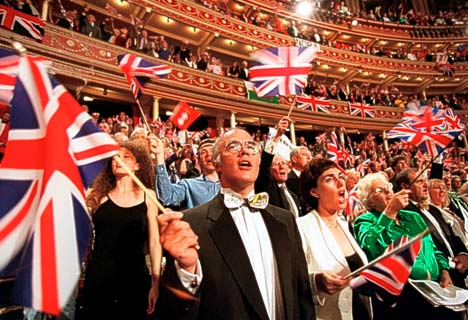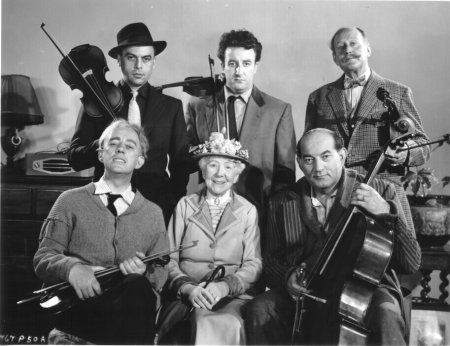This post on why seniors get discounts on tickets received some commentary, and there's a chance for even more: I'll be discussing the issue on Wisconsin Public Radio's At Issue, with host Cynthia Schuster, Thursday 3:00 - 4:00 Central. As a fellow Canadian once sang, call me at the station, the lines are open ... … [Read more...]
Archives for 2013
Dynamic pricing in a disaster
Dynamic pricing involves adjusting prices for a specific product in light of new information regarding consumer demand (see my earlier post here). Airlines and hotels will increase prices for a specific flight, or a room on a particular night, upwards if sales on those items are more brisk than was anticipated (and they will lower prices if sales are more sluggish than expected). It is also applied in the arts, although rarely, perhaps with good reason: it takes attention and effort to constantly monitor demand and choose new prices, and … [Read more...]
Why do seniors get discounts?
From the Priceonomics blog: You’ve seen them on the bus, in museums, and at movie theaters: senior discounts. As a reward for being old, senior citizens pay a quarter less for bus fare, a small fortune less for movie tickets, and receive discounts generally all over the place. If you’re a twentysomething, or part of what some journalists have colorfully called “the screwed generation,” you may be wondering: why not me? The idea that seniors are a group in need of help and protection dates back to the thirties, when America’s senior … [Read more...]
Scalpers
The Observer reports that scalpers (or touts) are making a killing on tickets for the Proms: One unofficial online site is offering seats for the Doctor Who-themed Prom on 14 July for £500, compared with the official flat-rate price of £12. A ticket for the first night on 12 July is offered for £400, against an original value of £38. It is not just fans of the Proms who will be disappointed this summer. Many events in the coming months have already sold out – including the Rolling Stones' Hyde Park concert – with the only tickets available … [Read more...]
The economic impact of everything: a response
I will present a thoughful comment from my previous post in full, since it is worth addressing in depth: Respectfully, so what if “many, many firms will approach government with the same claims” of job creation and economic impact? So what if every living organism announces what economic benefit they bring to the universe? Whereas you see in it something bad, mendacious or even destructive, I would argue that this is precisely one of the kinds of information we want. Note my use of the words: “one of the kinds.” It should never be only metric … [Read more...]
Amazon and economic impact: either/or
The Daily Telegraph reports: Amazon’s UK operation generated £4.2bn of sales last year, but it used a subsidiary in Luxembourg to help it reduce its corporation tax bill in the country to just £2.4m in 2012. According to documents filed at Companies House, the company received £2.5m in government handouts over the same period. Also: The Seattle-based company would not say which investments the UK Government has helped with, but last year it opened a new distribution plant in Hemel Hempstead, creating 600 jobs, promising to open three more … [Read more...]
On special showings for seniors
At the Freakonomics blog, Daniel Hamermesh reports on pricing at his local cinema in suburban London: Every Tuesday they show a recent movie (e.g., Lincoln is showing on May 21) and charge only £3 ($4.60). Moreover, you get “free tea, coffee and biscuits!” Such a deal—so how can they make money off this, or is it just altruism by the theater owners toward us old folks? The movie costs no extra rental, and the only variable costs are the wages of the one or two workers who sell the tickets and make the eats. The fixed costs—of the movie … [Read more...]
How student discounts work
Student discounts are offered many places - in restaurants, theaters, tuxedo rentals - and in both the commercial and nonprofit sectors. Nonprofits might want to discount student prices on equity grounds, giving them a break because they have less disposable income. But commercial firms offer these discounts too. It might be to try to gain loyalty to the brand that will extend beyond the customer's student years. But it also could be simple price discrimination, recognizing that students have different demand patterns than graduates. How to … [Read more...]
Why a lottery?
The Daily Telegraph reports on a new offer by the English National Opera: Fans buying tickets to see the ENOs most popular performances will be given the chance to win the best seats in the house under the new “secret seats” scheme. The gamble could also see them end up with the worst seats, although organisers promise no view will be restricted and no ticket will be worth less than £25 ordinary sale price. The scheme was launched as part of a new season announced yesterday, as the ENO aims to redress a financial deficit in … [Read more...]
What do we talk about when we talk about the economic impact of the arts?
In the news from Britain in the past week has been a speech by Culture Minister Maria Miller on the arts and the economy in the UK - the full text is here. Commentary has ranged from the concern about putting too much emphasis on the economic, to how we ought to define cultural industries in the contemporary world. I would like to focus on what linkages the Minister sees between culture and the economy. As Tim Harford notes, the speech is a bit of a jumble, so let us try to untangle some of the knots. I see three kinds of ways to think about … [Read more...]









